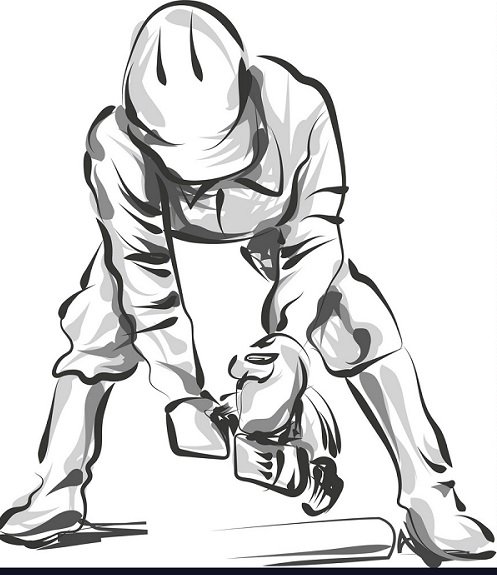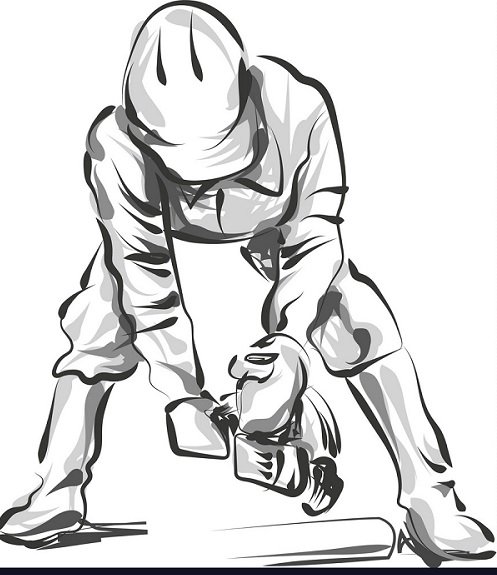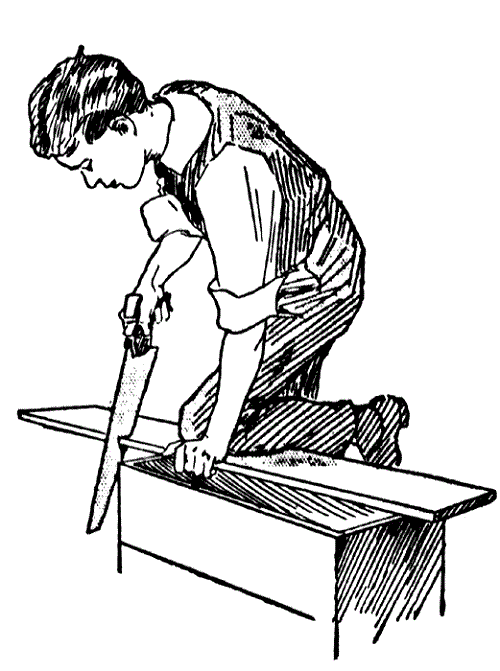Features
Work is a blessing; God bless all workers

Everything good that has ever been accomplished in human history happened because of work; usually hard work. Sometimes our most enthusiastic efforts have been focused on finding ways to make work easier. But the work never completely goes away, does it? That’s because work is the engine of life. It gives us reason to get up in the morning and satisfaction when we take our rest in the evening. In many countries, there is a special day to honour the men and women who get things done—we call it Workers Day, May Day or Labour Day.
Most of us spend a good portion of our day working. Whether in an office, classroom, or construction site; the garden, home, factory, or on the farm, work is simply a part of life. Usually we are thankful to have work, though we may be anxious to finish it as quickly as possible. Work allows us to provide the necessities of life for ourselves and our loved ones. But have you ever thought of work as a cure for troubles and heartache?
Gordon B. Hinckley a religious leader once said, “I believe that for most of us the best medicine for loneliness is work and service on behalf of others. The best antidote I know for worry is work. The best medicine for despair is service. The best cure for weariness is the challenge of helping someone who is even more tired.”


Because work, by definition, requires effort and exertion, we tend to see it as something that makes life harder. So how can it possibly help us through hard times? Maybe the answer lies in the fact that work gives purpose and meaning to life; especially when our work makes life better for someone in need. Such work lifts our spirits and puts our problems in perspective. A person may retire from a career, but we need never retire from serving others and seeking to improve the world.
Work is a mental, physical, and spiritual necessity. We need it not only to stay alive but to live well and to grow. When a mother of young children was asked how she made it through difficult times, she explained that mundane tasks like washing and cooking kept her going. Whenever she felt anxious or discouraged about her life, she would find something to do, and somehow, while organising a closet or at the market shopping for groceries, she discovered the strength to carry on.
It’s work that gets the grass mowed and the car washed and the corn and yam in the barn at the end of the season. It’s work that gets contracts filled, laundry folded, disputes settled, diseases cured, and food transported from one end of the country to another. Work designs and builds highways, bridges, homes, and factories.
But even more than that, work builds people. It teaches discipline, focus and sacrifice. Work is more than what we do; it shapes who we are. Far from being something to avoid, work is a blessing and a necessity; we are thankful we can work, and we seek work that will make our lives and our world a better place.
No one did this better than Thomas Edison. At a young age, he began tinkering with things in his basement laboratory, doing what some might call work but what he simply saw as living. He received more than 1,000 patents—the equivalent of one every two weeks throughout his working career. His inventions include the incandescent light bulb, the phonograph, batteries, motion pictures, and the first viable system of centrally generating electric light, heat, and power. At his death, people and communities around the world dimmed their lights in honour of his work. Edison said, “Opportunity is missed by most people because it is dressed in overalls and looks like work.”
Work isn’t measured eight to five any longer than it is reserved for what we often call the workplace. Isn’t every place a place of work? There’s housework and homework, teamwork and paid work. We work in the garden and in our churches; we work at getting an education; we work at being kind to one another, at selflessly serving those in need. We work at getting in shape and getting past where we were yesterday. We work at making something of our lives.
More than 1,600 years ago, St. Augustine is said to have taught this timeless truth: “Pray as though everything depended on God. Work as though everything depended on you.”
Indeed, our willingness to work can make a big difference in life. A leader who worked for several years in a service organisation with hundreds of young men and women observed that the defining quality of the best young leaders was their ability to work. Those who knew how to work were happier, more confident, and better able to adapt to new situations. They were problem solvers. And most often, those young people went on to have successful lives. From early on, work spelled the difference.
And so we celebrate work. It’s a day set aside to rest from labour, even as we remember all those who labour to build this nation: in the farms and factories, the offices and warehouses, the stores and schools, the roads and highways; anyplace where honourable, honest labour is performed. Those who work fuel the progress of nations and the betterment of our communities. Truly, workers deserve a pat on the back and a heartfelt reminder of their importance in our society.
Work is good for the soul. It builds muscle and character, it strengthens hand and heart, and nothing gets done or moves forward without it. Though work is different today than a 100 years ago, it’s still essential to life and happiness. Good work satisfies the soul and makes the world go round.
And so, on this day when we praise work and workers, may we roll up our sleeves and celebrate the blessing of work.So the next time you feel worried or downhearted, try some work. Your honest efforts to bless others and contribute to the world will bring the wonderful and sometimes unexpected blessings of work.
By Samuel Enos Eghan
Features
The Prophet part 4
Antobam woke up with a terrible headache. He checked the time on his mobile phone, 2:30 am. “What! Where is the money?” He asked aloud. “Where are those girls? Why did I drink so much of that whisky? What were those two girls up to?” He sat up on the bed and noticed a bulge close to the pillow.
He lifted the mattress and picked up the newspaper wrappers with the neatly arranged notes. He saw the neatly written record of the value of the notes. No, those girls are not thieves.
“It was my mistake. If I hadn’t drank myself to sleep they would be here in bed with me, giving me the time of my life. Pretty girls, those two. And so loyal and honest. Tomorrow will be different.”
“I will not drink any whisky, and I will show them that I am a real man. Just then he heard the whispers. Very soon it will be time, they seemed to be saying. This is an important day.”
The gold dealer will bring lots of money. Give him some of the liquid to drink, and we will prepare him. He will do very big business, and he will give you anything you ask for. There will be more miracles and testimonies today.
Antobam smiled to himself. “I am going to be a very rich man in only a few days man. Money, power, and women. Wow! Antobam got to the grounds at 5, but there were quite a number of people waiting.
Mr Kwame Dofu was among them. He greeted them all, and they came around to shake his hand. “My brothers and sisters, I assure you that whatever your problem is, you will not go home without a solution.” Shouts of “Amen” “thank” you Osofo and “you are a true man of God” responded.
“Please take your seats, and start talking to the great one about whatever bothers you. Before the service is over, there will be a solution.” He waved Mr Dofu over, and went with him to the wooden structure that serves as a temporary office.
“My brother, I have done quite a lot of work on the issue you came to see me about. I have prepared a special, powerful package for you. Take this, drink it, and go back to your business. I want to see you in two weeks.”
Beaming with smiles, Mr Dofu drank the foul smelling liquid in two gulps, said a big thank you to Antobam and took his leave. “I believe you, Papa Osofo. And I assure you that I will reward you, big time.”
Just when Osofo Antubam finished with Mr Dofu, Mary and Suzzie went over to him. “Good Morning ladies. I am very sorry about yesterday. I drank too much of the stuff you gave me. Today will be different, I assure you.”
“Don’t worry, Osofo. Since you are now setting things up, our main concern now is to help you to put things in place, and to make you comfortable. We are always there to serve you. This morning, Osofo, we want to go and clean up your place, and prepare something nice for you when you close.
And before coming to church, we will pass by the bank and collect the forms. After you have signed them, the account will be open. You can check the payments anytime and, of course, issue cheques whenever you need money.”
“Suzzie and Mary, I am happy I picked the two of you from the very start. Listen, I will take good care of you, okay? Here is some money. Buy whatever you need for the errands you have mentioned.
And here is the key. Please come back as early as you can. You know I need you here.” The service was very lively. The lively singing of praise songs was followed by one and a half hours of testimonies.
Most of them related to money – big sales, new jobs and overdue debts paid. But there were also testimonies about healing. Barren women had taken seed, and, of course, several men who had lost their bedroom authority had regained them, to the delight of their partners.
As he had promised, Antobam preached for only 30 minutes, exhorting the congregation to attend church regularly, pay their tithes and offerings, and strictly follow his ‘directions’ for securing solutions to their problems.
After another round of praises during which the congregation danced to the floor to drop their offering, he closed the service, grabbed the big bowl which was full to the brim with money, and moved to his desk. A long queue was quickly formed at the desk.
Meanwhile, Mary and Suzzie had gone to give Antobam’s place quite a decent look. A new bedsheet and pillows, a secondhand carpet and four plastic chairs placed in the verandah had done the trick.
They also prepared two fish and chicken stews. After all these, they rushed to the National Savings Bank and collected application forms for opening current and savings accounts.
They joined the service a few minutes before the main session closed. Antobam looked round and saw, to his relief, Mary and Suzzie moving towards him. “Hello ladies. What have you been up to?” “Quite a bit, Osofo. We’ve just collected your drink. Here you are. We’ve made a few changes at your place. I think you will like it. You will also have something nice to eat. Now, here are the forms for the savings and current accounts.
If you will sign them, the bank will open the account. From today, we can pay all monies direct into the account.” ‘How can I thank you, ladies?” “You don’t need to thank us,” Suzzie said. “It is our duty to help a man of God succeed.” “Okay, my ladies, please take the offerings and count them as you did yesterday.
You can add the payments made after the consultations. Will it be possible to pay them into the account today?” “Yes,” Mary said. “The bank closes at four. If we leave here at three, we would be there just in time.”
The two friends started counting, as Osofo Antobam gave his clients his directions for solving their problems. On quite a few occasions he closed his eyes as if he was receiving direction from above on what to do.
But as the fetish priest at the Nana Kofi Broni shrine and the dwarfs had assured him, the solutions would certainly be provided. Having heard the huge testimonies earlier in the day, the clients parted with substantial sums of money in expectation.
By Ekow de Heer
Features
The issue of spiritual father in our churches
A student was supposed to go to school as the natural cause of events should be when universities or schools in general opens but this was not the case in a certain young man’s life.
He decided to postpone his trip because apparently he could not get to meet his pastor, his spiritual father. The question is, should this spiritual father die, will the young man’s life come to an end?
Does it mean in such an instance, he is going to curtail his education? This is a worrying trend in a lot of churches where the pastors use this notion of spiritual father to manipulate members especially the youth.
Some unscrupulous pastors utilise this spiritual father concept to have affairs with gullible young ladies in their churches.
Now with homosexuality gradually making inroads into some of the churches, young men are becoming vulnerable to pastors who have hidden homosexual inclinations.
This spiritual father concept is a Biblical concept that runs through both the Old Testament as well as the New Testament. We see it in 2 Kings 4:12 where Gehazi is serving Elisha and also in the New Testament we see Paul relating to Timothy in 1 Timothy 1:2 as a Spiritual Father.
In fact, the concept of spiritual father is a good thing if executed according to the word of God since it helps in guiding the younger ones. However, it becomes problematic when it is being executed by unscrupulous wolves in sheepskins as described by Jesus in Mathew 7:15.
I see it as a way that these unscrupulous so-called men of God maintain their hold on the congregants so they do not question their unchristian actions.
One of the things I have observed since I got born again many years ago is that, any pastor who often insists that members recognise that he is their spiritual father is a warning sign that he is doing some wrong things or is about to indulge in some wrong things.
A parent complained about how his daughter was being influenced by a pastor of the church she attends and how worried he was. I am sure there are many parents out there with stories to tell about how their wards are being made to see their pastors almost like their Jesus.
These pastors have managed to make their congregants so loyal to them and to believe in them so much that it is terrifying, as a parent.
The way things are going, an immediate intervention is required otherwise I am not a prophet of doom but I forsee unfortunate instances where parents burst into church auditoriums and star shooting some Pastors out of frustration and anger.
We cannot look on unconcerned as a society and allow unscrupulous fraudsters using the name of God to create problems for families. My recommendation is for a certain amount of regulation in order to bring some sanity in religious practices.
I agree that ordinarily regulating religious practices makes it a bit restrictive in terms of freedom of worship as enshrined in our constitution but given the way things are going, a bit of regulation will not be out of place.
Disgusting stuff are being attributed to some men of God. There are cases of manipulation of young ladies and sometimes married women by so called men of God and it is bringing Christianity and therefore the name of the Lord into disrepute.
Christianity is gradually losing its attractiveness as a result of the negative reportage resulting from disgusting stuff happening in Christian circles. The way some pastors have been manipulating congregants to take money from them leaves much to be desired to the point where they are convincing some of the youth to give out their phones. May God help us.
By Laud Kissi-Mensah







